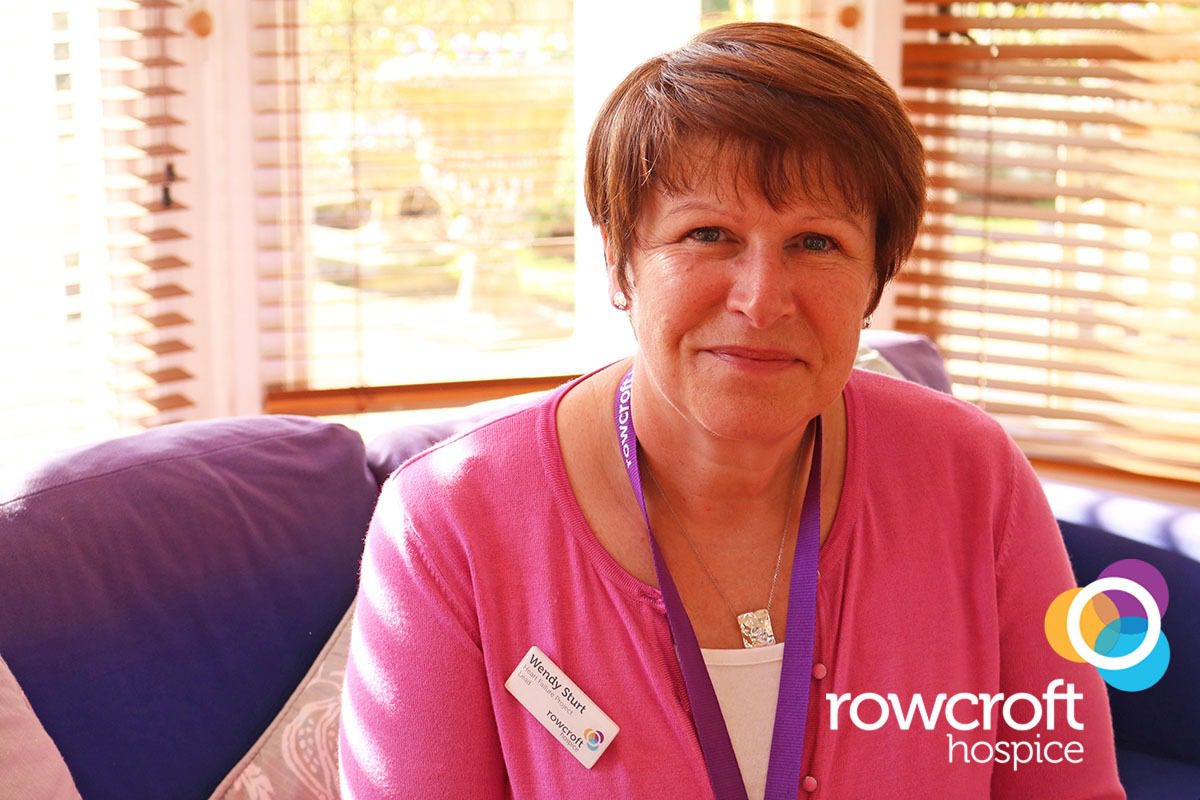It’s believed more than 900,000 people have heart failure in the UK and it’s the most common reason for people over 65 to be hospitalised. Back in November 2017, we started a project to look at how patients with heart failure can be better supported at the end of their lives. The project is funded by St James’s Place Charitable Foundation and led by Rowcroft Heart Failure Project Lead, Wendy Sturt.
A patient may see specialists in a range of settings, so it’s crucial that care providers have an understanding of all the services that are available and how to access them. With this in mind, Wendy brought together people from across Rowcroft Hospice and Torbay Hospital to form the Supportive & Palliative Care in Heart Failure Multi-Disciplinary Team (MDT). The MDT is made up of people from different areas, such as the hospital’s palliative care team, Rowcroft’s community team and the integrated heart failure team. The MDT’s aim is simple – to make sure that people with end-stage heart failure can access the specialist care they need.
Wendy tells us, “Straightaway, it was clear there was a strong desire by everyone involved to make this work. We all want patients and their families to fully benefit from hospice and supportive care services.”
The MDT has developed a new model of care for people with end-stage heart failure. By giving clear guidance to medical and nursing teams, the model will help to ensure patients can plan and experience better end-of-life care.
As part of the project, hospice nurses have been given enhanced training to manage symptoms specific to heart failure. An additional training session on palliative and end of life care was also held for staff at Torbay Hospital.
Wendy and the team have also worked with people affected by heart failure to create a leaflet explaining how palliative care services can support patients and their families. The hospice offers a wide range of services for people with a life-limiting illness, including outpatient services, home visits from Rowcroft’s community team and Hospice at Home care in the last weeks of life.
One thing that has become apparent during the project is the importance of hospice and hospital teams working together to support patients. Wendy explains, “I think the most powerful outcome so far has been a greater understanding of each other’s roles in patient care. An example of how this makes a real difference is the care of a recent patient with heart failure. Over a period of six months, this gentleman’s care and needs were reviewed three times at MDT meetings. He was referred to and seen by a Rowcroft clinical nurse specialist, an occupational therapist, a physiotherapist and complementary therapy teams. His preferences for end-of-life care were explored and he was able to die where he wanted to, in his own home.”
Since the project started, the number of heart failure patients being referred to the hospice has more than doubled. We believe this is thanks to greater collaboration between teams and increased awareness of the support that Rowcroft can offer.
While the initial project is due to end in May, the MDT and the new processes it has put in place will continue. New champions for Supportive & Palliative Care in Heart Failure are also being sought so that we can continue to raise awareness of the services available.
Together, we can help people with end-stage heart failure to get the care and support they need.


Leave a Reply
You must be logged in to post a comment.